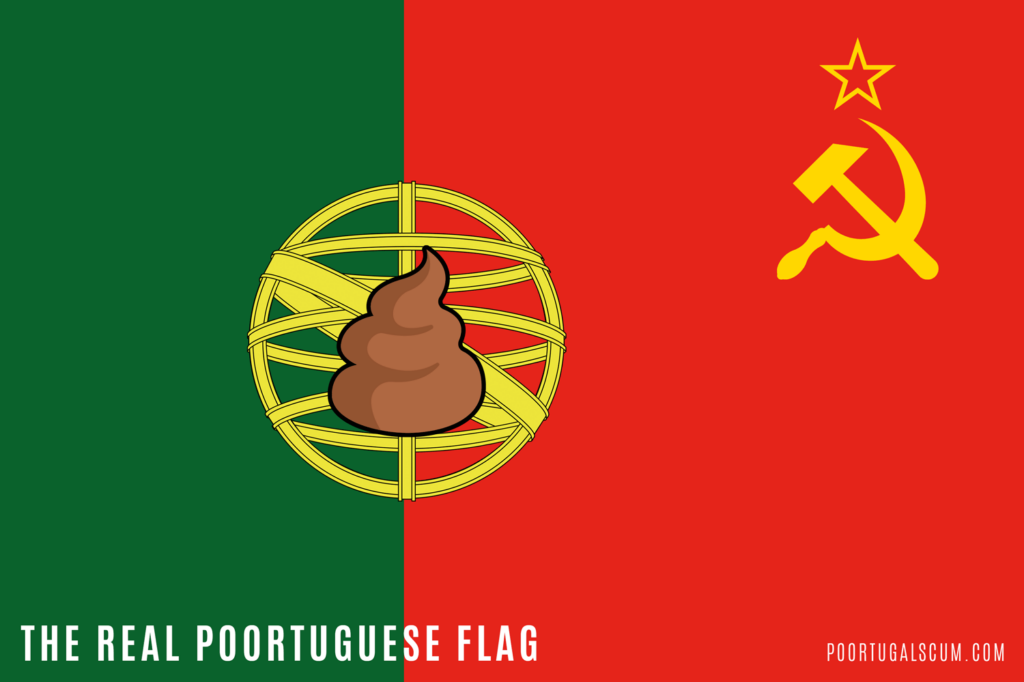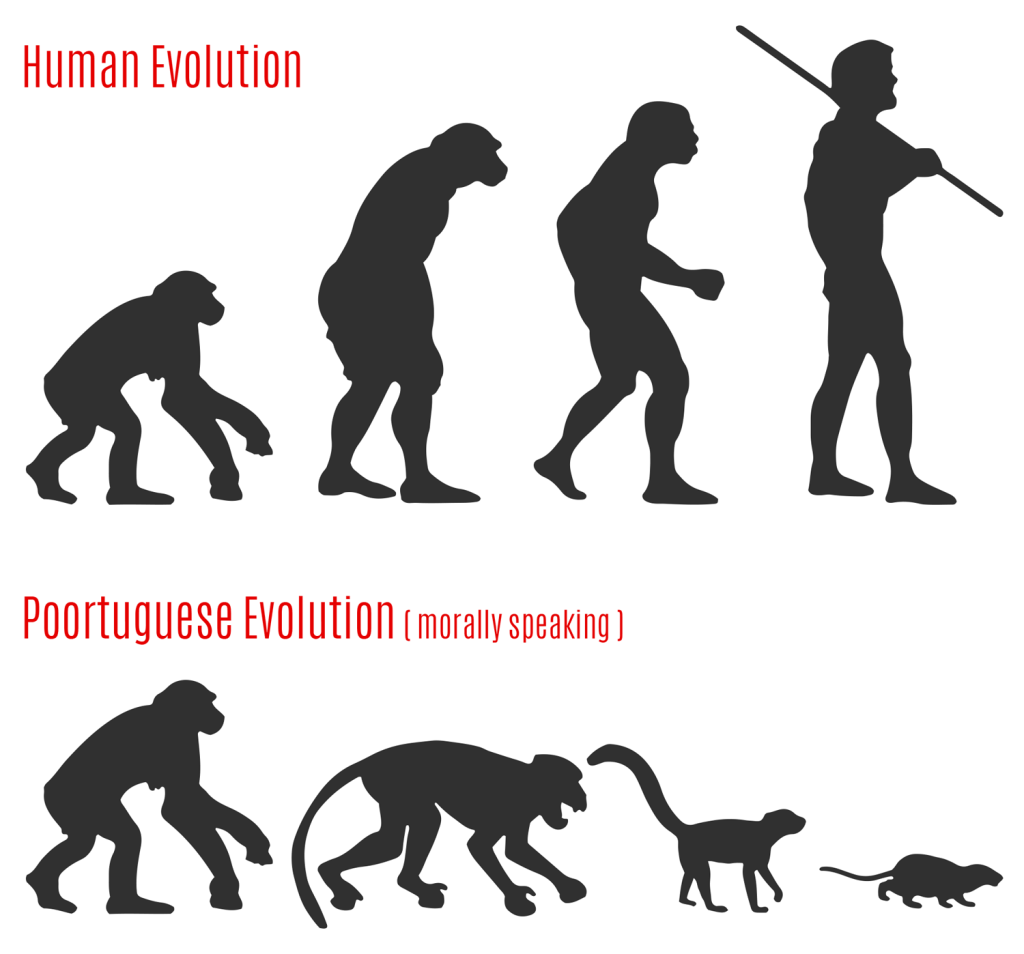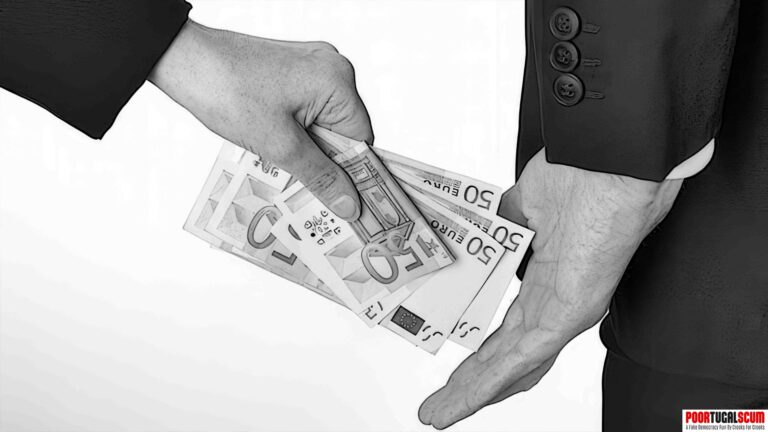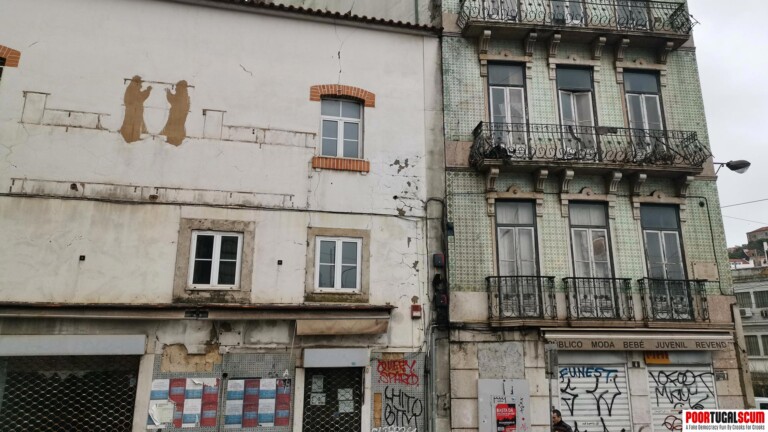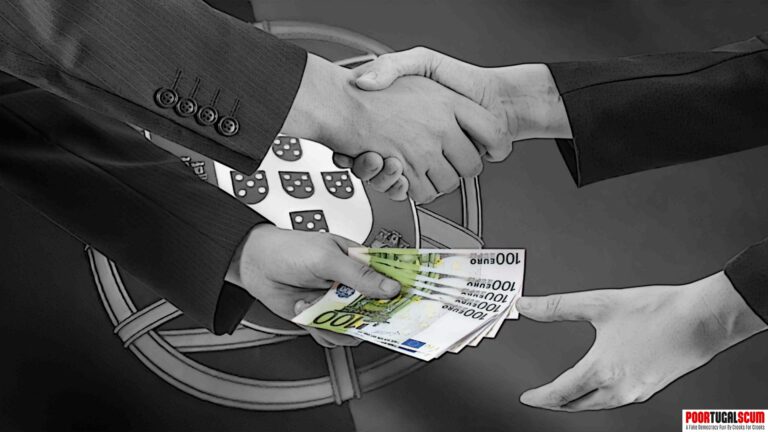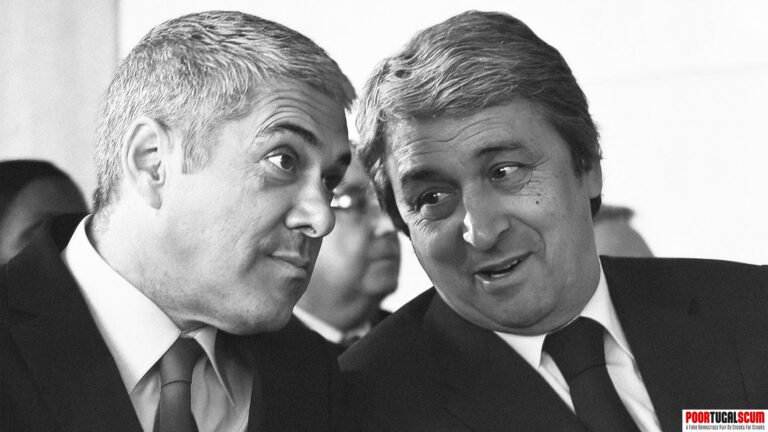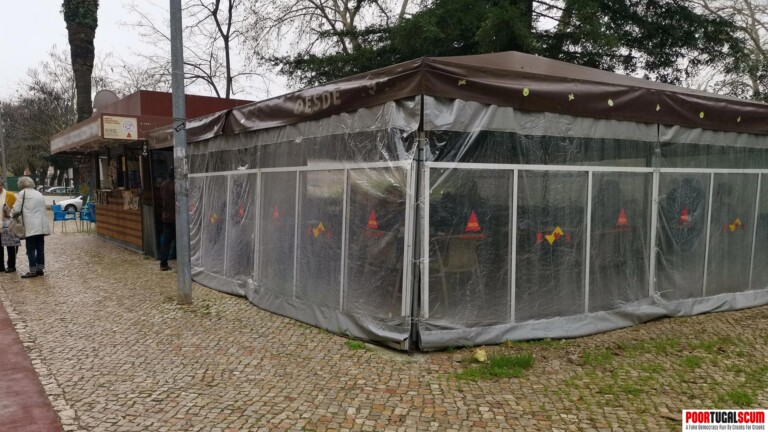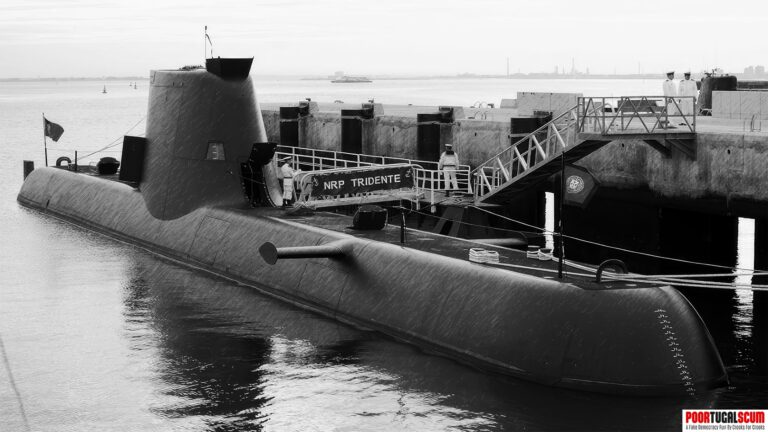The former Prime Minister of Portugal, José Sócrates, was, as far as is known, the most corrupt person in Portugal to occupy the highest executive position of the Portuguese State, however, as we can read in this necessarily long and dumbfounding post (due to the innumerable people and ramifications through which his corrupt power touched), he was acquitted (as is the norm in Portugal) of all extremely serious charges, namely corruption, being charged only for peanuts, which is practically guaranteed that even those will lapse. As well as all the other “participants”.
This utterly corrupt Prime Minister led Portugal into bankruptcy and was therefore responsible for Portugal being bailed out by the TROIKA comprising the EU, IMF and ECB from 2011 to 2014.
And after all the CALAMITY he has brought upon the Portuguese, he is now living a life of luxury and tranquility in his upper class villa by the sea in great harmony with the local Portuguese population, most of whom admire and greet him affectionately. Yes, this is Portugal (!!!)
In Portugal, the institutions are so truly criminal, so corrupt, and at the same time so repulsive, that I can’t even find adjectives to classify what you’re about to read, but it might make you puke, so disgusting is it.
One thing is for sure, this fake “country” called Portugal is not a country at all, it’s a gang of criminals stealing and mocking an entire population, the vast majority of whom are conniving morons who not only don’t care, but actually find it very funny.
Please note that since we are talking about Portugal, the most serious charges that this corrupt Prime Minister has been accused of probably do not reveal 1% of the true extent of the crimes committed and the devastation that has been caused directly and indirectly to the country for generations to come, due to concealment, but also due to the extreme ineptitude and ingrained chaos so typical of this rotten society.
In any other country, this major criminal would be serving multiple life sentences. In Portugal, he is jogging by the sea and signing autographs.
I must also say that corruption in Portugal continues to exist at the same level as it did with this former Prime Minister and everywhere, now and always, the only difference being that there are no legal charges, because it is Portugal, and when there are, they end in nothing.
You can read in this post that this criminal even had the nerve to demand compensation from the State for the dishonor and enormous inconvenience of being accused of such serious crimes! Poor little thing!
How can this filthy cesspool be allowed in the EU?! It’s horrible!
The following article is a translation (mostly MT). You can find the link to the original website at the end of it.
“Speculation”, “fantasy” and “total incoherence”: ten sentences by Ivo Rosa about the accusation of Operation Marquis
Judge criticized several points of the accusation, deciding not to put José Sócrates on trial for corruption crimes.
Over the course of two and a half hours, judge Ivo Rosa informed the country of the instructional decision of Operation Marquês, whose main defendant is former prime minister José Sócrates. Much of the intervention served the magistrate to point out the flaws in the investigation,
which led to the drop in corruption crimes of which the former prime minister was accused.
Ivo Rosa did not mince words: he detected “speculation” in several of the Public Prosecutor’s theses and “fantasy” in the grouping of the different parts of the process.
PÚBLICO selected ten of the magistrate’s strongest sentences:
- – “The Public Prosecutor’s Office’s arguments are based on speculation and fantasy” – assessment of the accusation made by Ivo Rosa
- – “The accusation does not have the necessary rigor to draw legal consequences based on it. It was required that the accusation had indicated the acts of the Prime Minister and that they were carried out following a financial advantage offered by Joaquim Barroca ” – on the accusation of Sócrates favoring the Lena group
- – “There is a total inconsistency here [from the accusation]” – regarding the alleged agreement between José Sócrates and Ricardo Salgado in the use of the State’s golden share in Portugal Telecom
- – “It is pure speculation and there is no direct proof that the money received by Carlos Santos Silva originated from BES, in relation to the PT/OI deal. It’s mere fantasy”
- – “This crime was already prescribed when the defendants were arrested” – decision on the crime of passive corruption attributed to Sócrates for the alleged favoritism of the Lena group
- – “[A wiretap] was requested by the Public Prosecutor’s Office without going through the investigating judge to consider the presuppositions of the evidence. There was usurpation of the judicial function. It is an irremediable nullity” – at which point the shipment of wiretaps from the Face Oculta process to Operation Marquês was considered null and void
- – “Total lack of proof” – about Sócrates’ interference in the TGV competition
- – “It must be said that the accusation does not point out concrete facts with a view to demonstrating the existence of a de facto administration of PT Comunicações by PT SGPS and more precisely by the defendant Henrique Granadeiro. As the indictment also does not point out facts with a view to demonstrating that the conduct described in the indictment was carried out by the defendant Zeinal Bava in his capacity as administrator of PT Comunicações” – regarding accusations made against Henrique Granadeiro and Zeinal Bava
- – “The indictment does not contain a narrative of the facts capable of integrating all the objective and subjective elements of the crimes of harmful administration and infidelity, and at this stage the court is prevented from making a change to the facts described in the indictment, in order to that it could contain the missing facts” – about the crimes of harmful administration and infidelity attributed to Henrique Granadeiro, Zeinal Brava and Ricardo Salgado
- – “[Accusation] is incoherent in chronological and logical terms” – about favoring the Lena group in Venezuela
More related news
Socrates escapes trial for corruption, but faces charges of money laundering and forgery
Ivo Rosa undermines the Public Prosecutor’s Office’s accusation and points out its lack of rigor. But he also says that it is “indicated that there are cash deliveries and payments of 1.7 million euros”. Ivo Rosa wants the MP to investigate Carlos Alexandre’s invalid acts.
Former Prime Minister José Sócrates escaped trial this Friday for three crimes of corruption of which he was accused, but will answer for six of the 31 crimes accused of him by the Public Ministry. Sócrates will be tried for three crimes of money laundering and three of document forgery. Of the 28 defendants in Operation Marquês, only five will be tried: Sócrates, his friend and businessman Carlos Santos Silva, former banker Ricardo Salgado, former minister Armando Vara and former driver João Perna. None for corruption.
Judge Ivo Rosa considered, during the reading of Operation Marquês’ instructional decision, that the three crimes of corruption attributed to Sócrates were time-barred. Furthermore, he stressed that the prosecution did not present evidence that the former ruler had received “gloves” to favor the Lena group, the Espírito Santo group or interfered in the financing given by Caixa Geral de Depósitos to a group of shareholders that allowed them to buy the Vale do Lobo development, in the Algarve.
It is worth highlighting, however, that prosecutor Rosário Teixeira has already announced that he intends to appeal this decision, which puts the last word on who will go to trial in this case in the hands of judges from the Lisbon Court of Appeal. In fact, even before Ivo Rosa’s decision was known within the Public Prosecutor’s Office there was a conviction that it would be inevitable to appeal the investigative decision.
Despite debunking a large part of the accusation, judge Ivo Rosa considered that the deliveries of money by Carlos Santos Silva to the former prime minister indicated a crime of corruption between them, with the former being the active corruptor and Sócrates the passive one. This illicit act, he argued, will be prescribed. “It is clear that there are cash deliveries and payments of 1.7 million euros. However, the reason for the money deliveries is not known, but they indicate the obtaining of a financial advantage due to the fact that José Sócrates was prime minister. Cash deliveries were intended to buy sympathy”, said Ivo Rosa. Despite being prescribed, the illicit amount obtained could give rise to other crimes, such as money laundering, illicit acts for which Sócrates must still respond, considered Ivo Rosa.
The investigating judge decided that Ricardo Salgado, who was accused of 21 crimes, will answer for only three of breach of trust. Armando Vara will be tried for a crime of money laundering and João Perna for possession of a prohibited weapon. The judge considered, however, that it did not make sense for the defendants to be tried all together and ordered the separation of cases, which go to different courts. Fourteen defendants, including the former directors of Portugal Telecom (PT), Henrique Granadeiro and Zeinal Bava, and nine companies saw the charges against them dropped, for various reasons, from lack of evidence to the statute of limitations for the offenses alleged against them. Regarding the former managers of the telecommunications company, Ivo Rosa considered that they could not be accused of corruption for formal reasons (they would have to have employee status and would not have it), arguing that the tax fraud was time-barred.
Regarding the acquisition of Telemar/OI in Brazil through PT, Ivo Rosa considered that there was no evidence that Sócrates had received 12 million euros from Ricardo Salgado in exchange for support in the acquisition strategy. In fact, the judicial magistrate criticized the Public Ministry’s accusation for not identifying who Sócrates had influenced to obtain legislative changes in order to favor BES in the sale of Vivo in Brazil. He said there was still no evidence that Sócrates had spoken, for this purpose, with the then president of Brazil, Lula da Silva.
The magistrate, who spent three and a half hours reading a summary of the decision, also highlighted that the crime of passive corruption of which Sócrates was accused together with Ricardo Salgado and which is related to GES was prescribed when the accusation was brought in 2017 Ivo Rosa says that this crime expired in 2015, two years before Sócrates was confronted with the accusation.
Regarding PT’s OPA, the judge considered that the witnesses indicated that the State’s position was always impartial. Ivo Rosa even highlighted that, in this case, “the accusation appears to be inconsistent”. For the judge, there are not enough elements in the case that demonstrated that José Sócrates had influence over Caixa Geral de Depósitos.
Lena Group
As for the Lena Group, judge Ivo Rosa decided that former prime minister José Sócrates will not be tried for the crime of passive corruption regarding the suspected favoritism of this business group. Carlos Santos Silva, who appeared as a co-author, will also not be tried for this crime. Judge Ivo Rosa considers that the crime is time-barred.
“This crime was already prescribed when the defendants were detained”, he noted, citing the case law of the Constitutional Court. This is because the last transactions allegedly made between José Sócrates, Carlos Santos Silva and Joaquim Barroca date back to January 2007.
Furthermore, Ivo Rosa said that the accusation “does not have the necessary rigor” with regard to favoring the Lena Group. “The idea that the Lena group was favored by the prime minister in the projects for which it entered the competition and did not win falls to the ground”, says Ivo Rosa.
No illegalities found in Parque Escolar
The judge also decided that there was no illegality in the Parque Escolar case. The Public Ministry “limited itself” to describing the competitions and direct adjustments, but no illegality was identified.
Parque Escolar was created in 2007 to carry out one of the flagships of José Sócrates’ governments – the modernization of 332 secondary schools, a program that began to be valued at 940 million euros, but which, three years after its launch, when 205 schools were covered, corresponding to 3.2 billion euros, according to data from an audit by the Court of Auditors.
MP will investigate Carlos Alexandre’s null acts
During the reading of the decision, Ivo Rosa also informed that two crimes of forgery attributed to Sócrates and Carlos Santos Silva would fall. Ivo Rosa considers that the investigating judge Carlos Alexandre did not have the power to authorize the investigation that was carried out with the Bank of Portugal, related to the businessman’s adherence to the capital repatriation regime. “The information provided by Banco de Portugal on this matter is null”, declared the judge.
In fact, Ivo Rosa mentioned judge Carlos Alexandre again regarding another matter. He considered that there are acts carried out by judge Carlos Alexandre during the investigation phase of Operation Marquês that are null and void. The delivery of the case to this magistrate in September 2014 was done manually and not electronically, thus disrespecting the principle of natural justice, said judge Ivo Rosa. The magistrate will order a certificate to be extracted so that the Public Prosecutor’s Office can investigate suspicions of a possible crime.
The Face Oculta process was another reference. Judge Ivo Rosa declared the nullity of the sending of the Face Oculta wiretaps for use in Operation Marquês, “since the migration to the present files did not follow the legal procedure”. “It was requested by the Public Prosecutor’s Office without going through the investigating judge to consider the assumptions of the evidence. There was usurpation of the judicial function. It is an irremediable nullity,” he said.
As for the competition for the TGV, “nothing shows that this defendant [José Sócrates] has exploited his powers”, said Ivo Rosa, adding that none of the witnesses in question say they received orders from the prime minister. At this point, a crime of corruption was at stake for favoring the interests of the Lena Group.
Judge Ivo Rosa considers that there is no evidence that the money from Joaquim Barroca, manager of Grupo Lena, went to José Sócrates. “There is no evidence of any connection” to the money transfers from Barroca to Carlos Santos Silva. Sócrates is thus cleared of illegalities in the attribution of the TGV concession to the Elos consortium.
More related news
Operation Marquis: prescription in sight and José Sócrates may not be tried for any crime
It is becoming increasingly possible that José Sócrates will never be tried in the Operation Marquês process.
The limitation period ends at the beginning of 2025, and until then, it will not be possible to conclude the trial and have a final decision. As several experts explain to TVI (from the same group as CNN Portugal), this should bring to an end one of the biggest cases in Portuguese justice, as part of which a former prime minister was detained.
More related news
Socrates should already be in prison for money laundering
This tastes little, but it’s not little. At the end of the day, the biggest villain of Portuguese democracy, the most immoral and authoritarian politician in living memory, will actually be tried for the crimes of money laundering. José Sócrates, the golden boy of the PS, the power party, the state party, the party that defended him to the point of madness, was actually corrupted in the position of prime minister. Ivo Rosa tells us that Sócrates used the position of prime minister to enrich himself illicitly. It doesn’t matter much considering the general picture of the accusation, but it’s not little. Especially because the Relationship could prove the MP right on other points that have now fallen.
I steal the title of this chronicle from a conversation between Ricardo Costa and Paulo Baldaia. This podcast is the best summary of this infamous story; It even seems like it was recorded after and not before Ivo Rosa’s speech. I will now explain what I mean by my thesis:
yes, Socrates should already be in prison for money laundering; Receiving large, French-style suitcases of money is a crime, especially if the gentleman in question is a former prime minister. This was enough and left over, there was no need for the mega process.
Like everyone else, I know that proving the causal links of corruption is very difficult, because the corrupt do not have a bank account saying “look, man, here I received the money from my corruption”. I know it. But, like everyone else, I am a little perplexed by what seems to me to be an excess of guarantees that ends up protecting corruption in Portugal. As Ana Sá Lopes said yesterday, it seems that corruption – for Ivo Rosa – only exists if it is drawn up by a notary, if there is such a bank account saying “here I received the dirty money” or if a wire appears with the corrupt person acknowledging live and in color that has been corrupted by y and x.
Like everyone else, I don’t understand why PS and PSD pass laws that make fighting corruption almost impossible. How can the crime of corruption, whose investigation takes so long, have such tight statutes of limitations?
But, unlike most people, I wasn’t expecting José Sócrates to be tried for corruption. It was like this with Isaltino: the crime of corruption fell, because it is very difficult to prove, and the crimes of money laundering and evasion remained.
( … )
More related news
Sócrates hid more luxury houses, which have now been found by the investigation
After all, José Sócrates’ real estate assets seem to be greater than expected. The Public Ministry believes that there are two more houses and land purchased by his friend and “foreman”, Carlos Santos Silva, between 2006 and 2010, which are in reality owned by the former prime minister.
At issue is a luxury apartment, purchased for 662 thousand euros, on Rua Soeiro Pereira Gomes, and another, for 188 thousand euros, in São Domingos de Benfica, both in Lisbon; and also a piece of land, worth 250 thousand euros, in Quinta da Beloura, in Sintra, according to Correio da Manhã writes today.
In total, according to information collected by the newspaper, the properties cost one million euros and are revealed in the initial order of the investigating judge Carlos Alexandre, who, on November 24 last year, arrested Sócrates and Carlos Santos Silva, for suspicions of corruption, qualified tax fraud and money laundering.
Just like the luxurious house in Paris, which was purchased for 2.8 million euros and cost almost half a million euros in decoration work alone, the Public Prosecutor’s Office believes that Santos Silva appeared as the buyer, but the real owner of the properties was José Sócrates, then prime minister – between 2005 and 2011. Santos Silva was just the figurehead.
Carlos Santos Silva, recalls the newspaper, bought at least three houses from José Sócrates’ mother, Maria Adelaide Monteiro – one in Lisbon and two apartments in Cacém, which the investigation believes were simulated sales to justify financial transactions between the two defendants.
One of the deals that also appears in the process was the purchase of Monte das Margaridas, in Montemor-o-Novo, acquired by José Sócrates’ ex-wife, Sofia Fava, who took out a loan and had Santos Silva as guarantor.
More related news
João Paulo Batalha: “The risk is that Operation Marquês ends up like Casa Pia”
Former president of TIAC questions the slowness of justice in this case,
contesting Ivo Rosa’s justification for not taking Sócrates to trial for tax fraud. Magistrate said that former prime minister had no obligation to declare money allegedly received as bribes.
When José Sócrates was detained at Lisbon airport, on November 21, 2014, João Paulo Batalha was on the board of Transparency and Integrity – Associação Cívica (TIAC). This Friday, seven years after the arrest of the former prime minister, the decision of the investigating judge Ivo Rosa, who dropped the corruption trial, João Paulo Batalha, who was president of TIAC between 2017 and 2020, questions the justifications presented by the judge.
“The idea that there is no tax crime, despite the law explicitly saying that people have to declare their income – including that from illicit activities – because it would be self-incrimination is bizarre.
If it’s not useful for that, then tax crime is useless”, begins by saying João Paulo Batalha, speaking to PÚBLICO.
Ivo Rosa understood that José Sócrates could not be tried for the crime of tax fraud, considering that he was not obliged to declare the money he had allegedly received as a bribe. If he did so, he would be “proceeding to self-incriminate”.
“If Judge Ivo Rosa’s interpretation prevails, we can remove this crime [of tax fraud] from the Penal Code”, says João Paulo Batalha, who once again criticized the slowness of this process. “At the end of the process, many years from now, it could lead to citizens not having confidence in the result. The big risk is that Operation Marquês ends up like the Casa Pia case: even after it comes to an end, no one trusts the decision that was made. People maintain their inner convictions about who is guilty or innocent.
Regarding the prescription of two of the three corruption crimes of which José Sócrates was accused, João Paulo Batalha distributes responsibility between two sectors.
“It will have to be clarified how the prescription is counted, but it is a political issue and about the organization of the judicial system.
While José Sócrates was prime minister, no one ‘touched’ him, no one investigated him and time was running out.
There are responsibilities at two levels. [We have to] fix the judicial system so that it is effective — which it is not. But we also realize that the State was, at the time of the events when Sócrates was prime minister, completely incapable of detecting these problems and reacting”, he concludes.
In September 2020, Susana Coroado replaced João Paulo Batalha as president of TIAC. In statements to the PÚBLICO, the person responsible also leaves warnings, noting however that they will still have to wait for the appeal from the Public Prosecutor’s Office
“I am still surprised by this decision. It is serious, it will inevitably have consequences for the investigation and prosecution of corruption in Portugal”, she explained to PÚBLICO, after reading the instructional decision.
When reading Ivo Rosa’s statements, Susana Coroado considers that the magistrate tried to hold the political class responsible:
“What surprised me most was the fact that for years we heard the political power shake the water off its coat and say: ‘To Justice what It’s Justice’. Today what Judge Ivo Rosa came to say is that there are many things that are not related to Justice, but rather to Politics. It returns responsibility to political power, which will have to speak out”
More related news
Ivo Rosa frees Granadeiro and Bava from corruption charges by Ricardo Salgado
The two former strongmen of Portugal Telecom were associated with the downfall of the former corporate colossus, but Ivo Rosa rejected the Public Ministry’s thesis that they were given “gloves” by Ricardo Salgado to manage the telecommunications group in accordance with the interests of its main shareholder, the GES.
The former president of the administration of Portugal Telecom (PT) Henrique Granadeiro and the former executive president Zeinal Bava were cleared of all the crimes of which they were accused, according to the Operation Marquês instructional decision.
Bava and Granadeiro, who went from luxury managers to targets of suspicion, and were accused of having contributed to the downfall of the former Portuguese business colossus,
were able today to breathe a sigh of relief upon hearing from the criminal investigation judge Ivo Rosa the news that they were exonerated of the crimes of corruption and embezzlement of which they were accused in the operation centered on former prime minister José Sócrates.
The instructive decision, which dropped the corruption accusations against Sócrates, also left ineffective all accusations against the two managers involved in the decisions that left PT in the hands of Brazilians from Oi and on the verge of collapse with the ruinous loan of 900 million of euros to Rioforte, the non-financial holding company of the Espírito Santo Group (GES).
From 31 crimes to 6. Ivo Rosa relieves Sócrates and destroys the Public Ministry
The ball now passes to the Public Ministry, which has already said that it will appeal the decision within 120 days.
Judge Ivo Rosa, who throughout the reading of the decision, made several disparaging comments about the work of the Public Prosecutor’s Office, using terms such as “inconsequential”, “innocuous”, “incoherent” or “incongruous” also did not accept the understanding that Bava and Granadeiro were corrupted by Ricardo Salgado (equally exonerated).
To be corrupted, the two former leaders of the PT group, who began to gain great notoriety during the period of Sonaecom’s failed Public Acquisition Offer (OPA), would have to be employees working for a public company.
But Ivo Rosa understood that the concessionaire of the public telecommunications service was PT Comunicações and not PT SGPS, which was where the facts under investigation occurred, which means, for the magistrate, that the two managers did not have the status of public servants.
“From then on, everything fell apart”, summarized Bava’s lawyer, José António Barreiros, as he left the court, after reading the decision. The former executive president of PT and the Brazilian company Oi was accused of five crimes: passive corruption (one), money laundering (one), document forgery (one) and qualified tax fraud (two).
According to the Public Ministry’s indictment, Zeinal Bava received around 25.2 million euros, between 2007 and 2011, through Espírito Santo Enterprises (the alleged GES blue bag).
More related news
Sócrates surrendered to the charms of Ericeira where he lives in a luxury house with his girlfriend
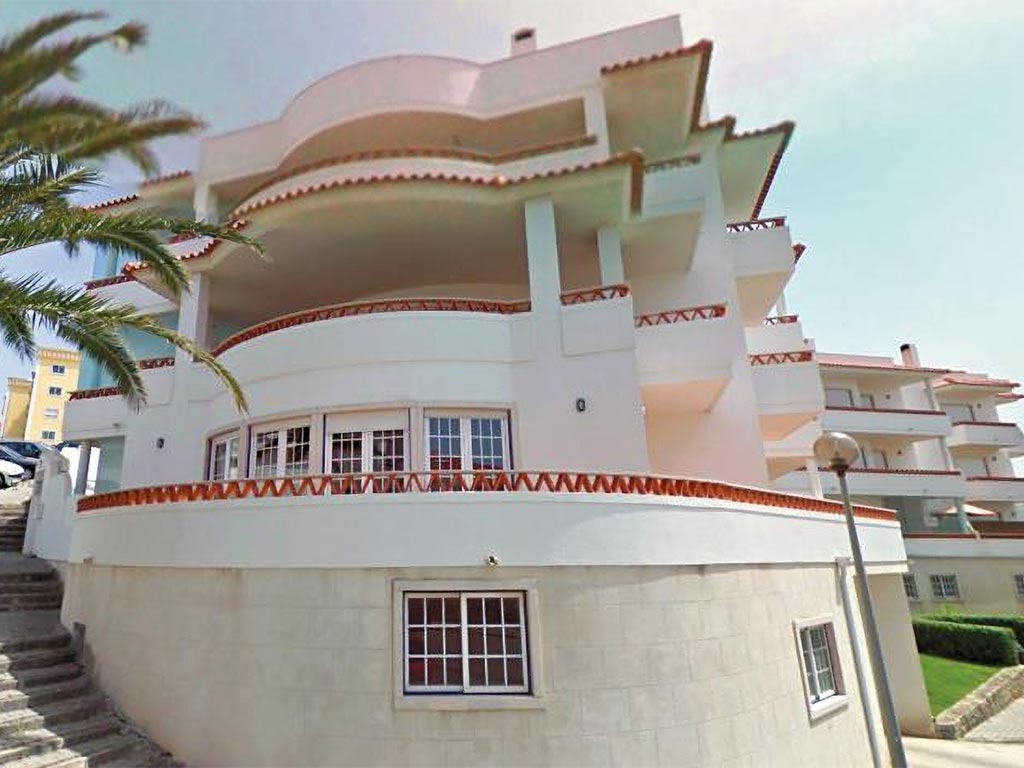
While waiting for developments in the process Marquês, spends his time watching the rough seas of Ericeira and watching surfers, enjoying his millionaire cousin’s house.
Not even the “architectural exaggerations” of the 80s and 90s of the last century could fade José Sócrates’ enchantment with Ericeira, the town where he went to live in the last months of 2018. “The impressions couldn’t be any better”, he confessed in an interview with Azul – Ericeira Mag.
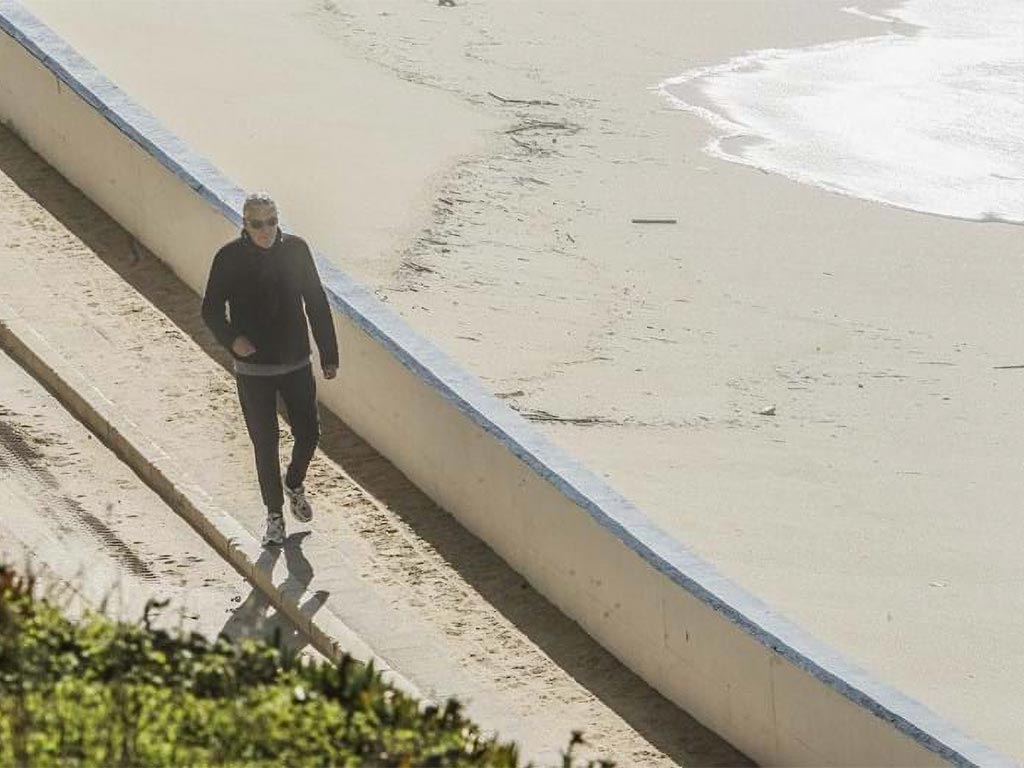
“I like this rough, strong sea in Ericeira. There are those who prefer calmer, warmer seas, which is not my preference. I like strong, rough, threatening seas! I haven’t bathed in this sea yet, but I like Ericeira on winter days”, said the former general secretary of the PS, arguing that the town’s landscape invites “introspection, reflection, walks and contemplation”.
In the same publication, Sócrates recalled that he did not leave Lisbon to go to Ericeira due to a personal decision and that everything happened “by chance”. “I came because my cousin had an uninhabited house here and invited me to come and live here. And I accepted. It’s a good, pleasant house”, he assured. When the change was announced, Sócrates explained that the house belonged to “a cousin who is very dear”. The property belongs to José Paulo Pinto de Sousa, who received it from an Angolan businessman of whom he was a creditor, and who, like the former Minister of the Environment, is also a defendant in Operation Marquês.
Sócrates’ problems did not stop in the capital, although Sócrates admits that in most cases everything goes well, which makes the town “even more beautiful” in his eyes: “it is very friendly and affectionate”. “Just like when I lived in Lisbon, there are also many people who approach me to say what you calculate,
but in general people behave with complete civility and have been very affectionate”, he assured.
Ericeira’s qualities don’t surprise him since close friends – minister Mário Lino and former chief of staff Guillherme Dray – told him a lot about the town.
He praises the “high quality municipal facilities, the good restaurants, the very friendly people and the extraordinary natural beauty”. “There’s nothing I can miss at all.”
Despite being integrated into the life of Ericeira without any problems, the former socialist ruler has not yet surrendered to one of the local trademarks, surfing. “I’ve never surfed and nothing pulls me towards it”, he assured, explaining that he has “a great admiration for the sea but also a lot of respect”.
More related news
The house where Sócrates lives belonged to an Angolan tycoon
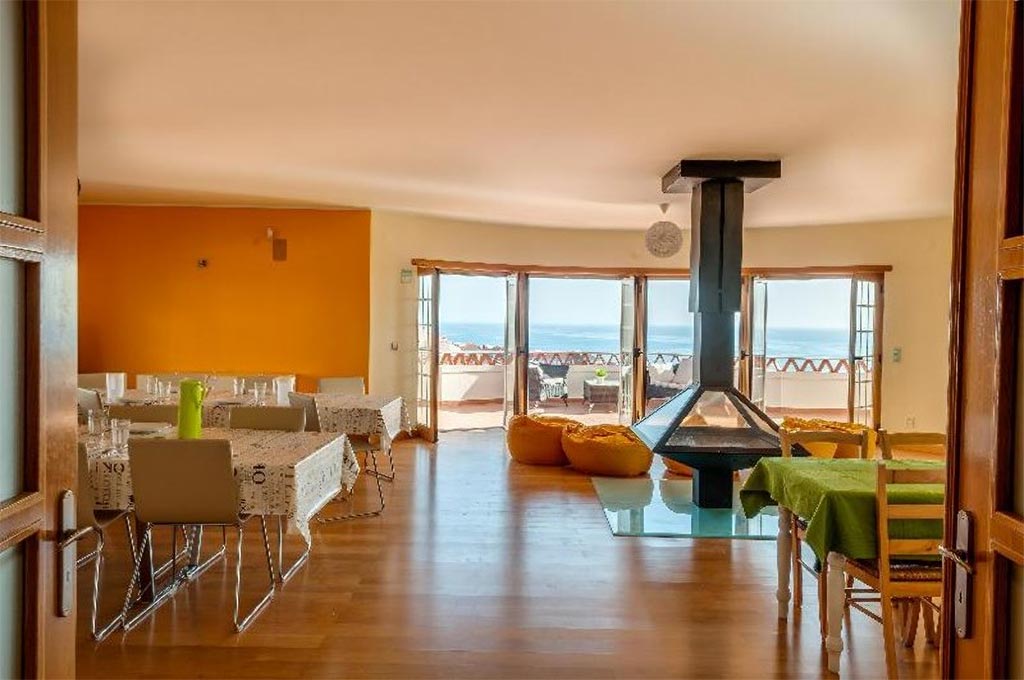
The apartment currently occupied by the former prime minister passed into the hands of his cousin who lives in Benguela through a ‘not normal’ transaction. It previously belonged to an Angolan millionaire.
The new house where José Sócrates moved about a month ago, in Ericeira, and which is now known to be in the name of his cousin José Paulo,
constitutes a true mystery, full of suspicious facts.
José Paulo Bernardo Pinto de Sousa, who lives in the Angolan city of Benguela, is accused by the Public Ministry of being one of Sócrates’ front men (for having received part of the ‘gloves’ that were intended for the former prime minister) and declared in Operation Marquis that he is bankrupt. According to the documents SOL had access to, the apartment became his property through an unusual transaction: a donation made by a rich and well-known Angolan businessman who allegedly owed him half a million US dollars, but which is not proven in the act of public deed, carried out on October 16 of this year. Not only was it not proven, but it was stated that the property is to “relieve” the debt, of which the businessman – who has a vast fortune, it should be noted – still has to pay “51 thousand euros and 74 cents” to be able to settle it.
This transaction, on the other hand, was carried out by a lawyer who acted with a power of attorney on behalf of both José Paulo and the previous owner, Fernando Anjos Ferreira, the aforementioned businessman.
This double representation is considered by forensic and business sources contacted by SOL to be “not at all normal, not to say even irregular”.

The person responsible for the operation was José Filipe Morais Alçada, a Portuguese lawyer in Luanda with links to Hélder Bataglia – the man who confessed to having made, at the request of Ricardo Salgado, transfers totaling 12 million euros to Sócrates between 2007 and 2008 and who is also defendant in Operation Marquis. At the time, Alçada worked for the office in Luanda of Ana Bruno, a lawyer who had worked in Bataglia’s business for many years, of which she was a partner at Akoya (the Swiss wealth management company that was at the center of the tax evasion schemes in the White Monte case).
‘Shared’ lawyer
When signing the deed for the house in Ericeira that Sócrates now lives in, Alçada presented himself with two powers of attorney, carried out in Angola, just a few days apart: a power of attorney made in Benguela on the 18th of July last, in which José Paulo gives him full powers to act in his name, namely, «receive from Mr. Fernando Anjos Ferreira» the aforementioned house in Ericeira; and a power of attorney made in Luanda on July 23rd, in which Fernando Ferreira gives him full powers to “confess to the debtor” of 500 thousand dollars to José Paulo and, “to pay that amount, give the aforementioned José Paulo” the house of Ericeira, «valued at 380 thousand euros».
According to the wording made by the notary in the deed, curiously already carried out in Lisbon, in this act «it was declared» by Alçada «that his represented Fernando dos Anjos Ferreira owes a debt to his represented José Paulo Bernardo Pinto de Sousa of 500 thousand American dollars against value of 431 thousand euros and 64 cents». It is to pay off this debt that he “gives away” the house he owns in Ericeira. The lawyer then “declares that, on behalf of his represented José Paulo Bernardo Pinto de Sousa, he accepts this payment in compliance and, consequently, declares that the aforementioned debt is reduced to the amount of 51 thousand euros and 74 cents”.
The house in question, and where Sócrates is now living, having abandoned the floor in Parque das Nações, in Lisbon,
is a T4 apartment measuring 312.25 square meters, in a three-storey building with sea views, in the middle of the village from Ericeira.
Similar properties in the area are for sale in real estate agencies for prices ranging between 365 thousand euros and 495 thousand euros. (at 2018 prices!)
In addition to the unusual way in which the house came into the hands of Sócrates’ cousin, business sources contacted by SOL confessed surprise that a businessman with a fortune like Fernando dos Anjos Ferreira had paid off a debt in this way and with the particularity of still having «51 thousand euros and 74 cents” to be paid, suspecting that “this detail only serves to give credibility to the supposed debt”.
For judicial sources, what stands out is another aspect: «These donations in payment of debts and without supporting documents are the best way to circulate capital without leaving a trace as to the origin of the money». Adding that «in a normal transaction, the check or the bank from which the transfer is made must be included in the deed, which would put the authorities on the trail of money and capital still hidden offshore, especially in the case of a person which even declares itself bankrupt».
Angolan multimillionaire
Fernando Anjos Ferreira is the owner of EFES – Empreendimentos – a company founded in 1999, in Luanda, which, according to the story reported on its website, «quickly extended its operations to the provinces of Kwanza Sul, Kwanza Norte, Malange and Huambo». «In the combination of several factors, but essentially, the result of the great vision of its founder, Fernando dos Anjos Ferreira» – it is added – «the company begins to develop, build and sell affordable housing projects. In a situation in which the bulk of investment was channeled into high-end projects, in the sense of real estate speculation, EFES initiates low-end housing projects».
EFES Empreendimentos has therefore become «recognized as a partner of the State in its social objectives». Fernando Ferreira’s group grew and broadened horizons, to markets such as «Brazil, Mozambique and Portugal», in businesses that today, in addition to construction and real estate, also include sectors such as beverages, telecommunications and renewable energy.
Contacted by SOL, José Alçada, who claims to have represented José Sócrates’ cousin as he maintains a relationship of friendship and trust with him, said he was unaware of the nature of the debt and acknowledged: “I learned my lesson.” According to the lawyer, his clients never presented him with documents about the debt in question: «I gave the information I had to the notary and he didn’t ask me for anything else either. That’s why I always thought I was dealing with a legal operation».
More related news
José Sócrates requests 50 thousand euros in compensation from the State
In the action, which begins to be judged in April, the former prime minister wants the State to be ordered to pay him compensation “for malfunction of justice”.
José Sócrates wants to be compensated by the State, because of the “malfunctioning of the administration of justice”. In a case taking place at the Lisbon Administrative Court, the former prime minister is asking for a total of 50 thousand euros in compensation, due to the length of time the Operation Marquês investigation lasted.
Sábado magazine reports that the action was filed on February 6, 2017, more than two years after Sócrates was arrested and placed under preventive and house arrest. The indictment of the case would only be known in October of that year.
In the complaint, the former government official alleges that the delay in closing the investigation (which, in total, lasted more than four years) caused him enormous losses. According to his lawyers, Sócrates lost, through the process, his right to “legal peace”, as he was subject to “constant public disclosure of his name and image”, associated with “especially dishonorable and very serious” crimes.
( … )


